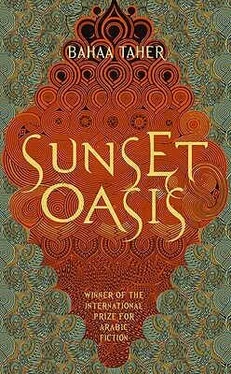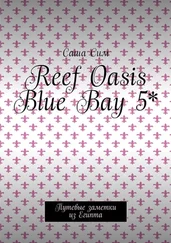Souvaltzi then wrote a lengthy book entitled The Tomb of Alexander the Great at the Siwa Oasis in which she seeks to refute the accusations directed against her by the Department of Egyptian Antiquities and asserts that she was on the track of the most important archaeological discovery of modern times. Who knows?
5. For the events of the Urabi Revolution I had two main sources, Abd el Rahman el Rafi'i's al-Thawra al-'urabiya wal-ihtilal al-ingilizi (The Urabi Revolution and the British Occupation), and Wilfred Blunt's The Secret History of the English Occupation of Egypt .
6. Last but not least, I offer my special thanks to my friend, the great poet and writer Dr Nassar Abdallah, from whose valuable counsel I benefited on more than one occasion during the writing of the novel. Thanks must also be extended to the two most demanding readers and critics of my work, my two dear daughters, Dina and Yusr. They did their duty and I can only hope that I have benefited from their perceptive comments.
7. One word remains to be said. In the Author's Note before the novel begins, I mention that I have found no information on the life of the real-life district commissioner Mahmoud Azmi or on what happened to him after the incident at the temple. It is worth noting, however, that it is said that the stones from the temple were used to build a new flight of steps for the police station and to repair the district commissioner's dwelling.
Bahaa Taher
Cairo
October 2006
In the seventh and eighth decades of the nineteenth century, Egypt witnessed major upheavals. Khedive Ismail, ruler from 1863 to 1879, bankrupted the country through his major infrastructural projects (which included the completion of the Suez Canal, in 1869), his foreign conquests, and his lavish lifestyle. By 1875, one third of Egypt's revenue was going to service debts on foreign loans at extortionate rates, and in 1876 the country stopped making payments. A European commission to manage the debt imposed on Ismail the same year had evolved by 1878 into the Dual Control, which gave France and Britain supervision not only of revenues but also of government. In acting so implacably, the Western powers may have been motivated by their desire to control the Suez Canal, which was vital to their colonial interests further east. Deposed by his nominal suzerain, the Ottoman Sultan, in 1879, Ismail went into exile and the 'experiment in autonomy that Muhammad Ali (Ismail's grandfather) had begun' 1came to an end.
The new khedive, Tawfiq (1879–1892), acquiesced in the stringent austerity measures imposed by the Dual Control. These caused hardship to many sectors of society, including the army, which was greatly reduced in size, and gave rise to a nationalist movement with the slogan 'Egypt for the Egyptians'. In 1881, Colonel Ahmad Urabi, a member of this movement, presented Tawfiq with demands that challenged foreign control of the country. Popular support for Urabi ultimately forced the khedive to appoint him minister of war.
In May 1882, alarmed by these developments, Britain and France sent a naval force to the waters off Alexandria, Egypt's largest port. On 11 June, popular resentment fired by this move — or, according to some accounts, instigated by the then governor of Alexandria, Umar Basha Lutfi, in collusion with the khedive and intended to undermine Urabi's credibility by demonstrating his inability to maintain order — exploded into riots. A naval bombardment of the city by the British, aimed at toppling Urabi, took place on 11 July 1882, leading to large-scale loss of life among its defenders and citizens. These events were referred to subsequently either (sympathetically) as 'the Urabi revolution' (Arabic: Thawret Urabi) or (dismissively) as 'the Riots' (el Hoga) . By September 1882, British land forces had defeated the Egyptian army under Urabi at Tell el-Kebir, the khedive had sought protection with the British, and the British domination of Egypt, which was to continue in various forms until 1956, had begun. By 1895, when the novel opens, Egypt was tranquil under Tawfiq's successor, Abbas Hilmi II (1892–1914). Real power, however, belonged not to the ruler but to the British consul general and the British 'advisors' appointed to steer the work of each ministry.
This bare-bones account is not intended to imply that Sunset Oasis should be read as an 'historical' novel but to clarify references to events with which the reader may not be familiar. The short glossary that follows includes further information on individuals and institutions as well as definitions of the few words that, to avoid awkward or lengthy equivalents, have been left untranslated in the text.
Humphrey Davies, 2009
1 Thompson, Jason. A History of Egypt from Earliest Times to the Present. Cairo American University in Cairo Press, 2008, p.249.
Abdallah el Nadeem (1843–1896): pioneering journalist and political activist, whose magazine el Lata'if became the organ of the Urabists.
Basha: Arabised form of Pasha, a Turkish title awarded to high-ranking officers of the administration and army in the Ottoman Empire.
Circassian: member of an ethnic group originally from the Caucasus, many of whom were imported into Egypt as military slaves during the Mamluke and Ottoman eras and who came to form an elite whose dominance of the Egyptian military continued even after the country's emancipation from direct Ottoman rule.
dahabiya : a large boat with cabins used for travel on the Nile.
dhikr : literally 'remembrance', i.e., remembrance of God, and hence a ceremony in which Sufis, adherents of the mystical school of Islam, constantly repeat His name, or that of one of His attributes, often to the accompaniment of rhythmic movement, in order to produce an ecstatic sense of closeness to the Divine.
feddan: a measure of land equal to 1,038 square metres.
gallabiya : the common, floor-length, outer garment of Egyptian men and women, closed at the front but with an opening, sometimes with buttons, from the neck to the mid breast, and long sleeves.
Khedive: a title awarded by the Ottoman sultan from 1867 onwards to rulers of the Muhammad Ali dynasty. The 'young khedive' mentioned towards the end of the novel is Abbas Hilmi II (1874–1944), who succeeded his father, Tawfiq, in 1892, at the age of seventeen. Abbas Hilmi II was deposed by Britain in 1914 for refusing to accept Egypt's separation from the Ottoman Empire and thereafter the title was no longer used.
Rifa'i sheikh: a member of the Rifa'iya Sufi order. Rifa'is are reputed to possess the power to discover and expel snakes from houses.
Sheikh el Afghani: Jamal el Din el Afghani (1838–1897), a political agitator, philosopher and teacher, and a major inspiration of Ahmad Urabi. Born in Persia, Afghani was invited to Egypt by nationalist leaders in 1870 but expelled by Khedive Tawfiq in 1879.
Senoussis: members of a militant reformist Islamic order that exercised great influence over the peoples of the Sahara, and especially Cyreniaca and the western marches of Egypt, from its founding in the mid-nineteenth century. In the years leading to 1894, their leader, Muhammad al-Mahdi, ruled from Jaghboub, a town thirty miles to the west of Siwa in what is today Libya. 'Mahdi' is both a name and a title meaning 'Rightly Guided'.
Umar Basha Lutfi: governor of Alexandria at the time of the British bombardment. A Circassian and close to the royal court, Umar Basha Lutfi has been accused of instigating insecurity in the city at the urging of Khedive Tawfiq, in order to justify the intervention of the British.
Urabi: Ahmad Urabi (1841–1911): army officer and nationalist leader who led Egyptian opposition to foreign domination of the country. Defeated by the British army at Tell el Kebir in September 1882, he was initially exiled but eventually returned to the country, where he died in obscurity.
Читать дальше












